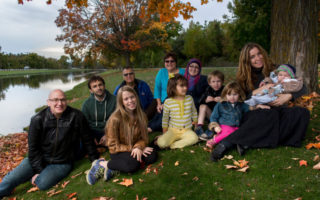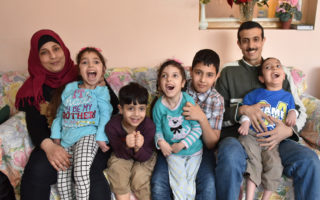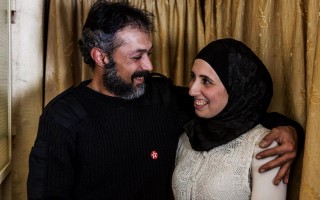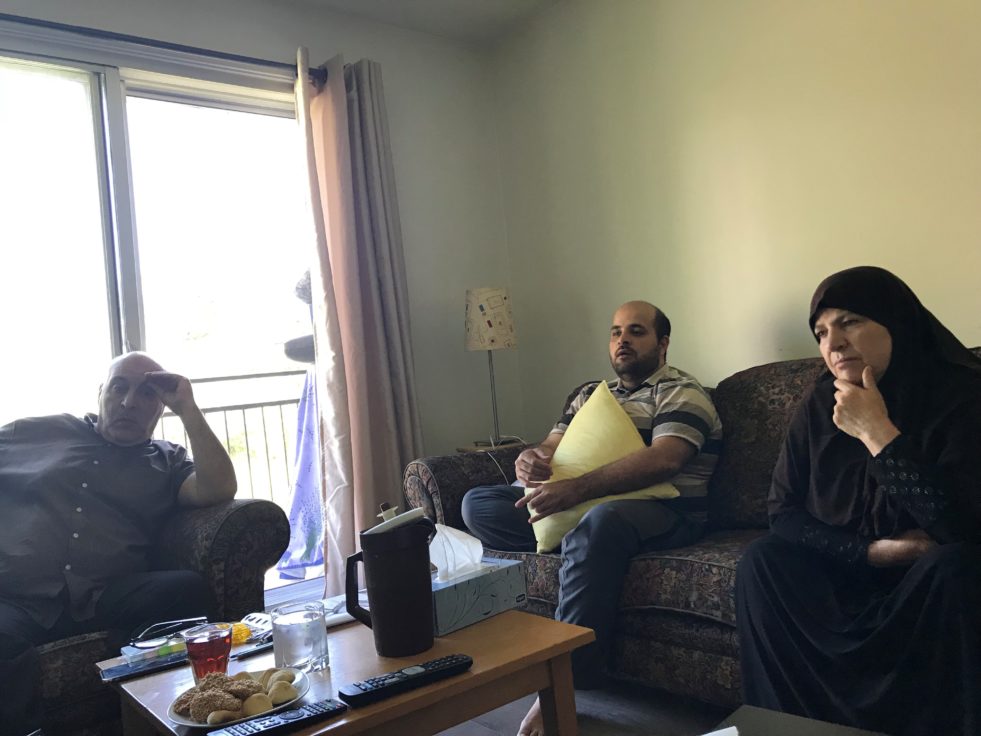
Photo credit: Qaseem (far left), along with his wife, Emrefa, and their son, Mohamad, enjoy the peacefulness of their apartment in Gatineau, Quebec. © UNHCR
A refugee father owes his survival to cardiology monitoring offered in Canada
Before that day in May 1997 in Daraa, Syria, when he was gripped with severe chest pains, Qaseem Husainy never had any serious health problems and was far from imagining how his heart condition would alter his life and eventually lead him to live in Canada.
“That first year, I suffered a lot trying to find a doctor who understood what I had. I eventually found one who was able to manage my condition with medications. But the war in Syria during these last few years did not help. At some point, we had to flee to Jordan where things became even more difficult.”
Fearing that two of his sons would be forcibly recalled into military service while the conflict was spreading in Syria, Qaseem and his family escaped their home city of Daraa in September 2012. They found refuge in Jerash in northern Jordan, a city better known for its unique Greco-Roman ruins than hosting Syrian refugees.
It was during his exile in Jordan that his condition deteriorated rapidly. There, he initially was receiving his heart medication from his daughter who had remained in Syria. But as the fighting spread to Daraa and the southern part of Syria, this stopped. Qaseem was left in Jordan with no medication, which made his condition worsen rapidly. With no access to medical care, Qaseem suffered a second heart attack.
“In Jordan, you hardly have a face-to-face with a doctor unless it is urgent, in which case they send an ambulance. After my second heart attack, I had to board a bus every other week to travel 50km away from where we lived in Jerash to see a doctor. I often waited in long queues for hours under a hot sun before being treated.”
Low funding for the Syrian refugee crisis remains a huge challenge for UNHCR, the UN Refugee Agency, and other humanitarian organisations that lack the capacity to provide effective care for chronic conditions, especially to refugees living outside of camps.
As part of its global protection mandate, UNHCR identifies the most vulnerable refugees, including those who suffer from chronic disease and who are unable to obtain treatment where they are located, and then appeals to countries like Canada to resettle them. Only five percent of the 1.4 million identified by UNHCR in need are resettled. Refugees identified because of their medical needs make up only three percent of all those resettled globally. Such refugees often have a life threatening health condition or face irreversible loss of function.
In spite of these very long odds against salvation, Qaseem was very lucky to have his case among the global three percent. Resettled to Gatineau, Quebec a little over a year ago, now 64, he still suffers from inadequate blood flow to the heart muscle.
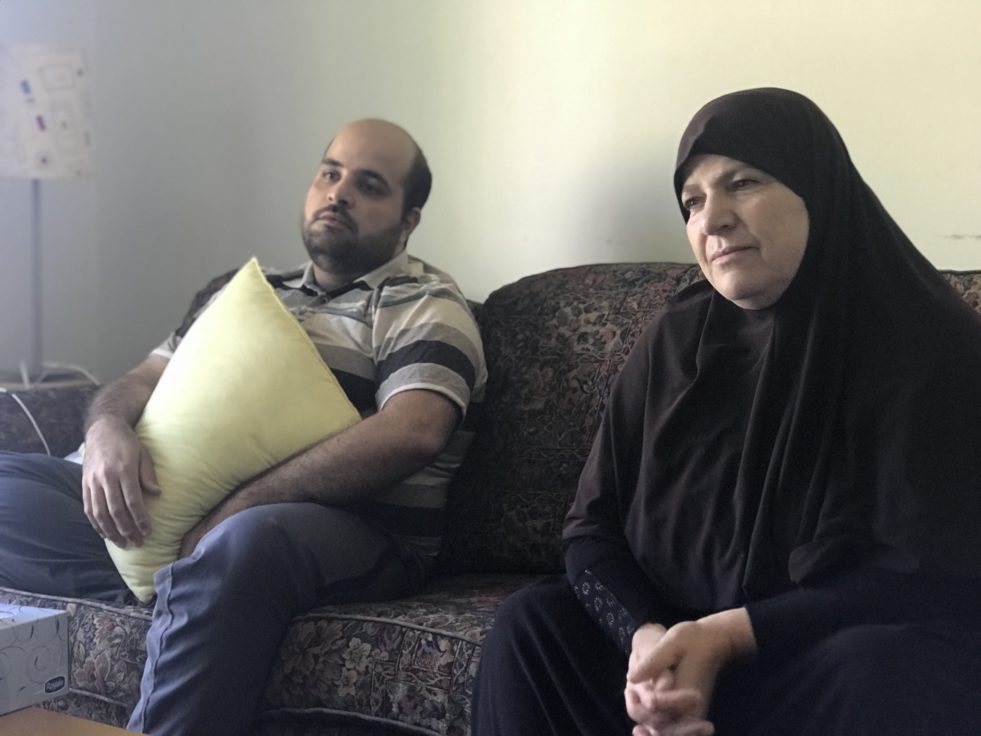
Emrefa (60) and her son Mohamad (29) spend much of their time helping Qaseem (64) to cope with his heart condition. © UNHCR
In the tranquillity of their neatly arranged apartment, his wife Emrefa, 60 and their younger son Mohamad, 29 who came with him to Canada, help him cope with his condition: they prepare healthy meals and make sure that he exercises regularly. Qaseem however, is still awaiting surgery to get a defibrillator, something he would never have been able to get in Syria or Jordan.
“The experience is so different here, and I am very grateful for everything. Medical follow-up is constant and doctors are more knowledgeable of my condition.”
But despite the sense of safety and security the family has found in Canada, Qaseem admits that he constantly worries about his two elder sons in Jordan, his married daughter in Syria and their families. This does not help with his fragile state of health.
“The separation is hard. When we moved to this apartment, we had no internet connection. My wife and I panicked as we had no news of/from our children. One day, she went on the street to try to find anyone who spoke Arabic to connect us, so that we could speak to our children.”
Syria accounts for the largest number of refugees worldwide. Of the 25.4 million refugees globally, one out of every four refugees is Syrian. Most of them have remained in countries neighbouring Syria, with the highest concentrations in Turkey, Lebanon and Jordan. This has led to an enormous strain on their economies, infrastructure and resources.
With Qaseem’s surgery coming up and the challenges of adjusting to a new life, the Husainy’s are praying to find healing and wholeness, and continue to hope that they will be reunited soon with their children.
“I have lost my country, I don’t want to lose my children too,” a weary-looking Qaseem concludes.

